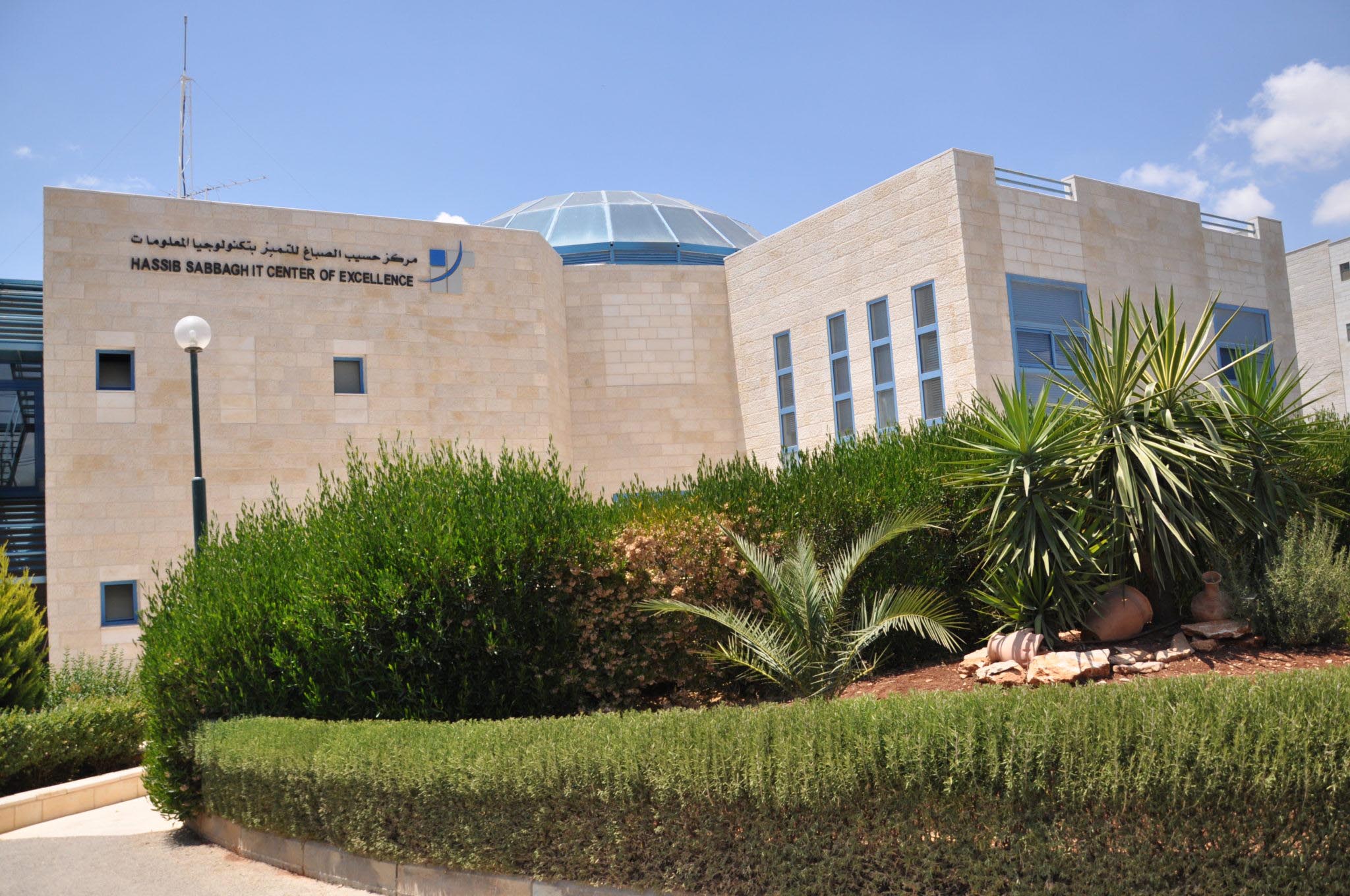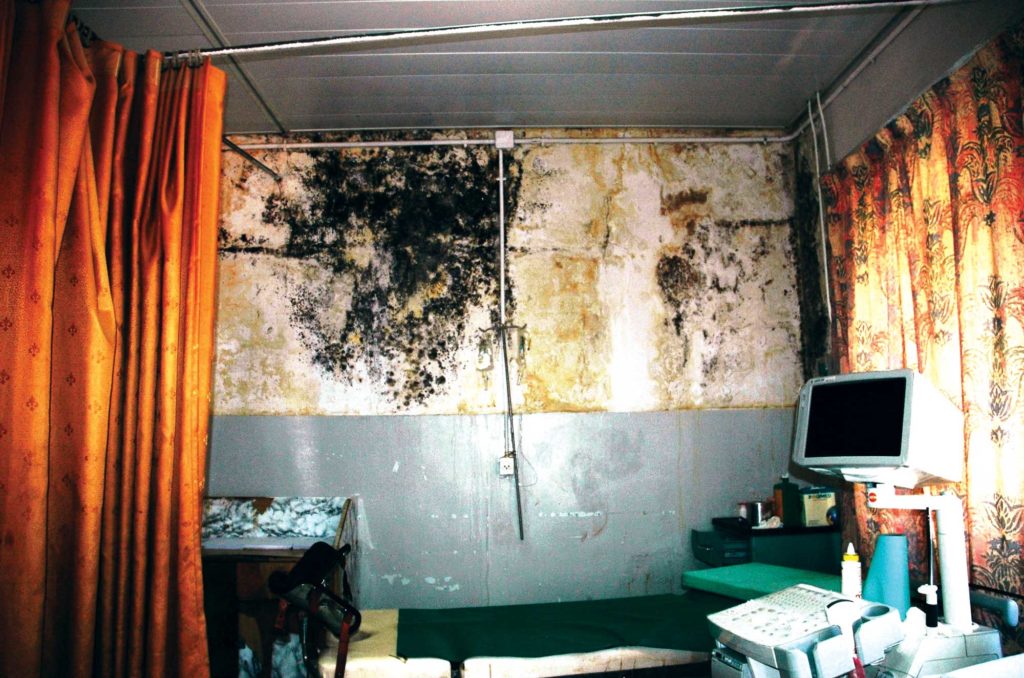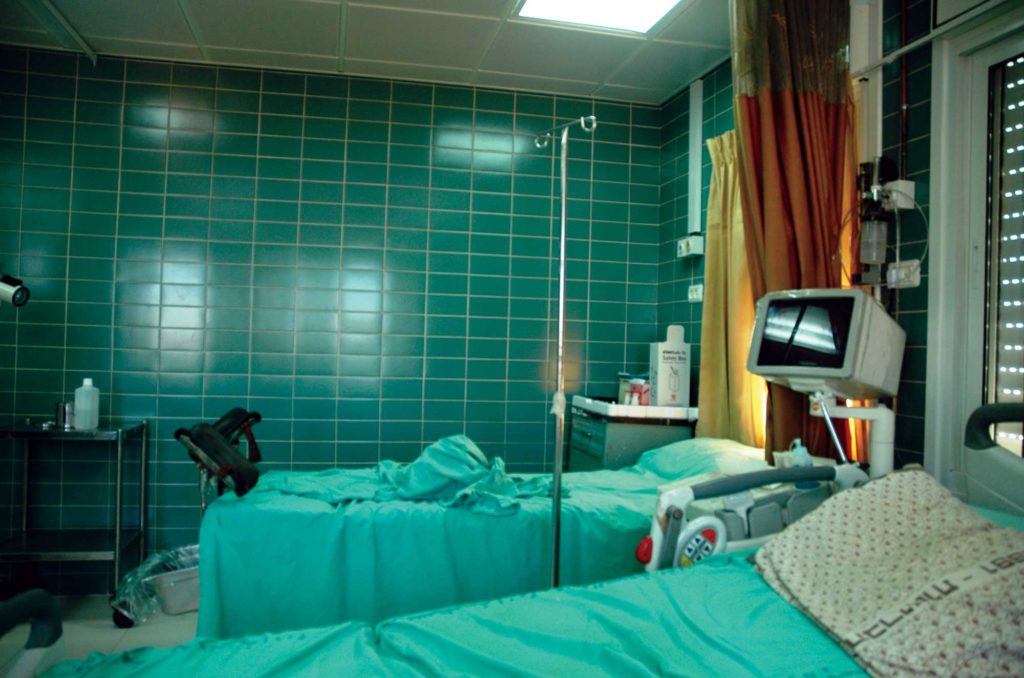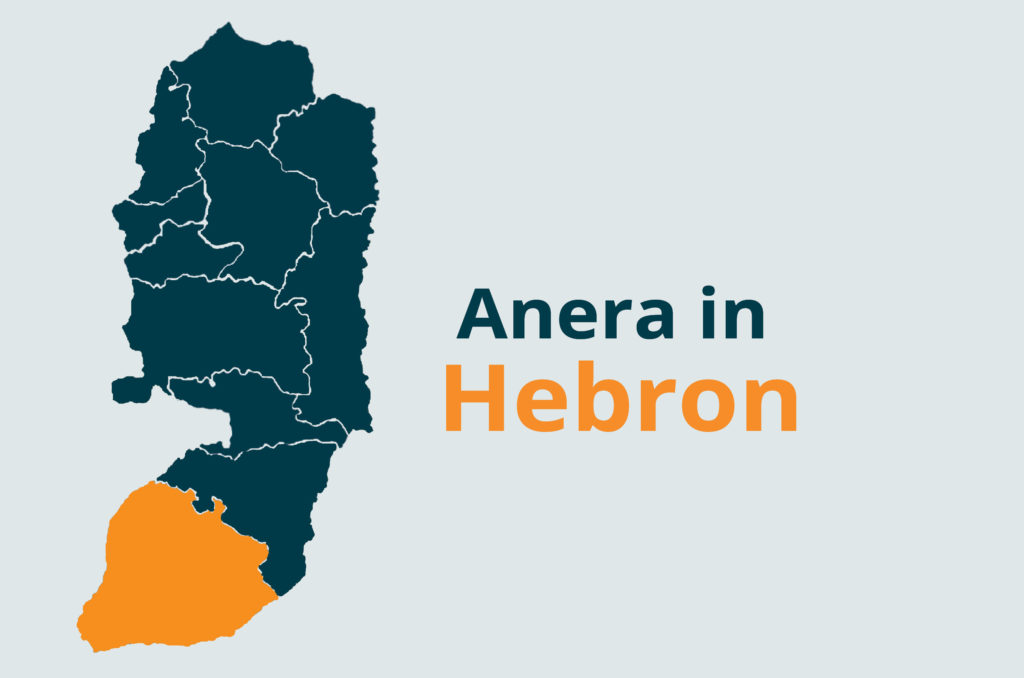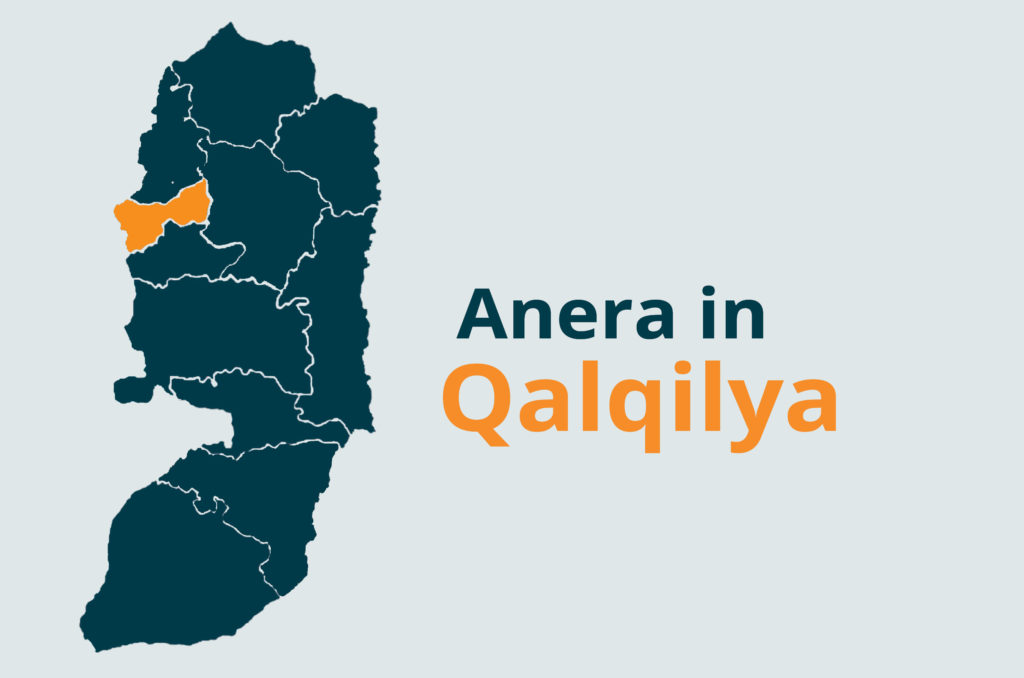Jul, 2017
With a name that comes from the Arabic for gardens, Jenin is renowned for its abundant fruits and vegetables. It's also famous for Marj Ibn Amer, a valley rich with plains of fertile soil.
Jenin Governorate | جنين محافظة
Jenin, the northernmost governorate in the West Bank, is home to some 300,000 people. The fertile lands of this region are dotted with the remains of ancient irrigation aqueducts. Jenin is also the name of the largest city in the governorate, and of its only refugee camp, which was subjected to considerable violence and disruption during the Second Intifada.
The city of Jenin, which has been a site of human settlement since the Neolithic period, lies along the ancient trade route from Nablus to Haifa. Today it is a scenic city on a hill, overlooking groves of olive, fig, and citrus trees.
The governorate is home to the Burqin Church, one of the oldest churches in the world, and the Fatima Khatoun Mosque in the old town of the city of Jenin, which dates from the 16th century. Along with Tulkarem, Jenin is regarded as the home of musakhan, often called the national dish of Palestine.
Unfortunately, like the rest of Palestine, Jenin suffers from Israeli-imposed mobility restrictions. The military checkpoints and separation wall have taken a toll on the economy. Jenin has also lost access to important water resources. Most farmers have been resorting to rain-fed agriculture, which has yielded limited profits with Jenin’s harsh summers. As a result, vast areas are left uncultivated, and many would-be breadwinners are tragically unemployed.
However, Jenin is home to a well-regarded Palestinian-American university that serves the entire population of the district, as well as countless schools that provide a good education for all its children.
Anera’s main goals in Jenin are to help farmers expand their skills and productivity, create safe spaces for schoolchildren and address various water issues. To address the latter, Anera has connected households to safe sources of water, put a stop to street flooding, and combated water scarcity on farms.
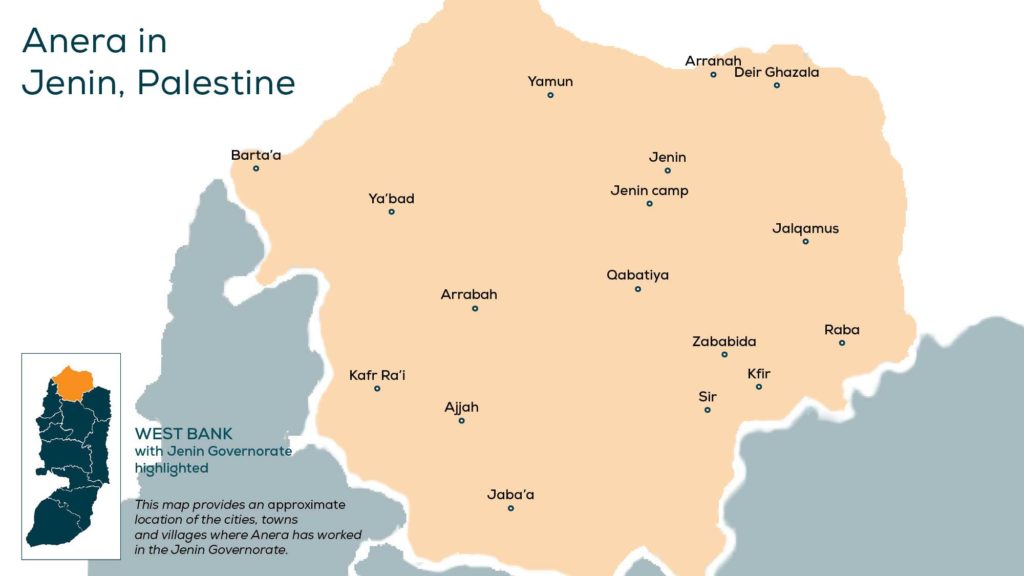

A New Era for Agriculture
Green Methods for Tackling Water Shortages | Agriculture has been a way of life for millennia in the Jenin area. Now farmers now have access to a new source of water for irrigating crops: treated wastewater. Anera’s programs help farmers and the Palestine environment by using recycled water from wastewater treatment plants to irrigate parks and fields of animal fodder and fruit trees.
Anera has addressed water scarcity in Jenin with a first-of-its-kind project that turns wastewater into a valuable irrigation resource. Completed in 2016, the project included installing a water distribution network, sub-surface irrigation system, pumps, filtration system, chlorination unit, and building a reservoir.
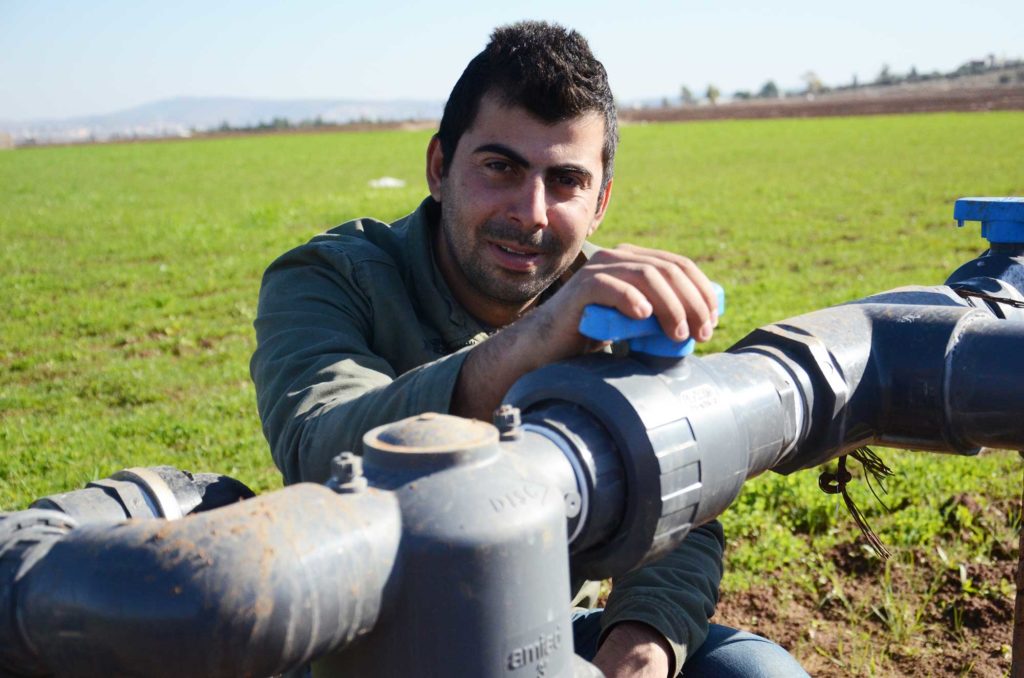

Our treated wastewater network in Jenin irrigates 700 acres of parched West Bank farmland, saving 16 million gallons of water from being thrown away annually. Anera established a water users’ cooperative to ensure that treated wastewater was equitably and efficiently shared among all of the member families. So far the project has helped 240 farming families cultivate their land, feed their livestock and produce more income.
Stemming from a belief in knowledge sharing and development, Anera has complemented its infrastructural work with a fundamental 17-day capacity-building training for farmers and board members. Study tours taught farmers about agricultural techniques and reclaimed water and were conducted in Jordan and the Galilee area.
The program also offered beneficiaries fodder crop seeds and fruit tree saplings. This helped farmers cultivate 58 acres of fodder crops and 14 acres of fruit trees. The first season produced a net profit that was 10 times that of rain-fed crops. The project has helped farmers to substantially increase their income.
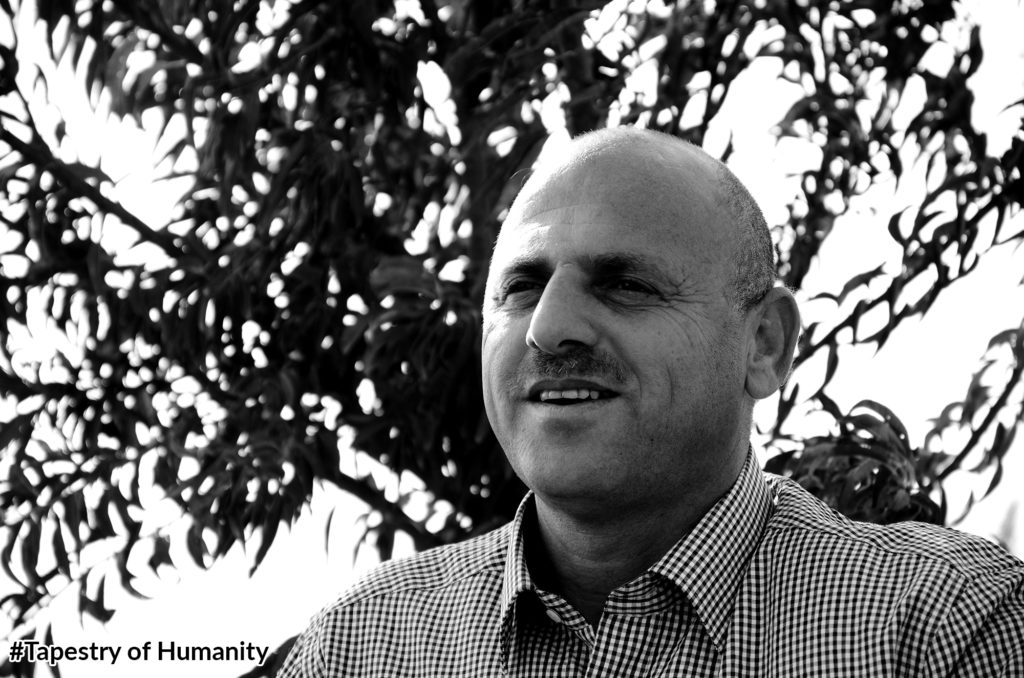

In the fertile plains of Marj Ibn Amer Valley, Mahmoud had been struggling to grow crops and feed his livestock, given the scarce water resources he could access in the West Bank. Now, the recycled water from the wastewater reuse project allows him to grow crops like alfalfa and millet, feed his sheep, and make more money, helping to boost the Palestinian economy.
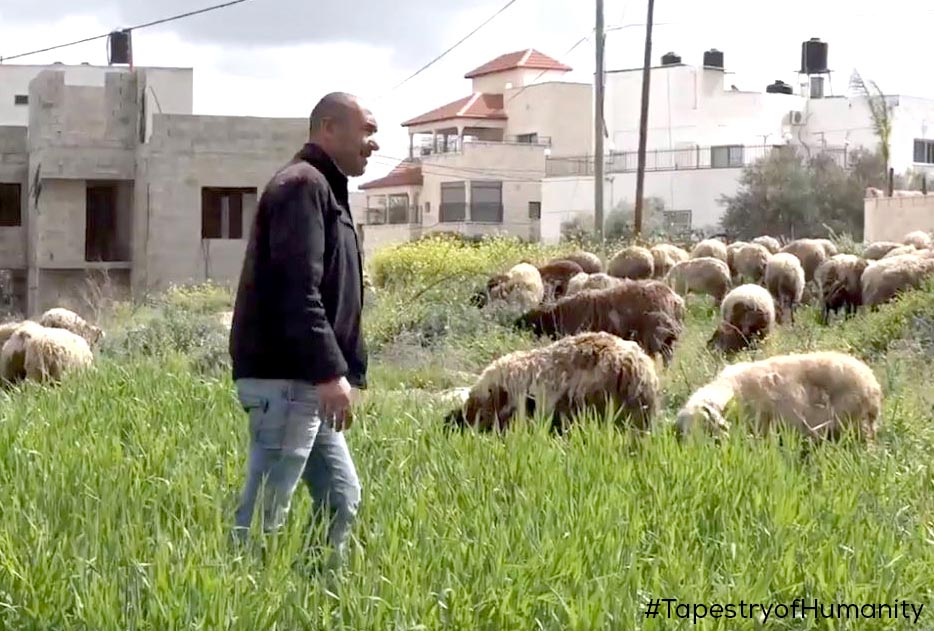



"Our only concern as farmers and herders is to provide food for our livestock. Before we provide for ourselves, we have to provide for the sheep. Because in the end, they feed us. But, the land is our most treasured possession."
— Mahmoud, a farmer in Marj Ibn Amer Valley
In the past, particularly in the 1980s, Anera contributed to the development of the agricultural sector in the area by providing tractors and other agricultural machinery to a cooperative in Barta'a. The project helped farmers reclaim their land by providing the needed machinery at affordable costs. With more crop yields and income, they were better able to provide for their families financially. The project also provided a bulldozer to the Jenin cooperative, benefiting its 550 farmers.
Similarly, the Jenin Agricultural Marketing Cooperative received mobile grading machinery for onion and potato crops. This introduced modern grading and sorting methods to the area and improved the marketability of products.
A $125,000 grant went towards establishing a well-equipped dairy factory in Jenin that provided new jobs and fresh dairy products for residents. The factory also helped control the outbreak of brucela disease among livestock. In addition, Anera provided assistance in purchasing five feeding bottles, six milking machines and two automatic wool scissors.
Anera's revolving credit program also served the Jenin area, benefiting agricultural co-ops across the West Bank. The co-ops acted as banks by lending to farmers, providing loans to help reclaim their land, and encouraging self-sufficiency and financial growth.
Water is a Necessity
In just the past decade, Anera has built, replaced and rehabilitated countless water distribution networks, pumps, rainfall drainage and collection systems, balance tanks, pipe extensions, and reservoirs for conserving potable water and cisterns.
As water is scarce and summers are harsh in Jenin, our water projects have reached underserved and impoverished areas in the periphery, connecting countless families with clean and affordable drinking water. The various projects have also put an end to water leakage and contamination in many areas around Jenin—conserving water, preventing disease and protecting the environment.
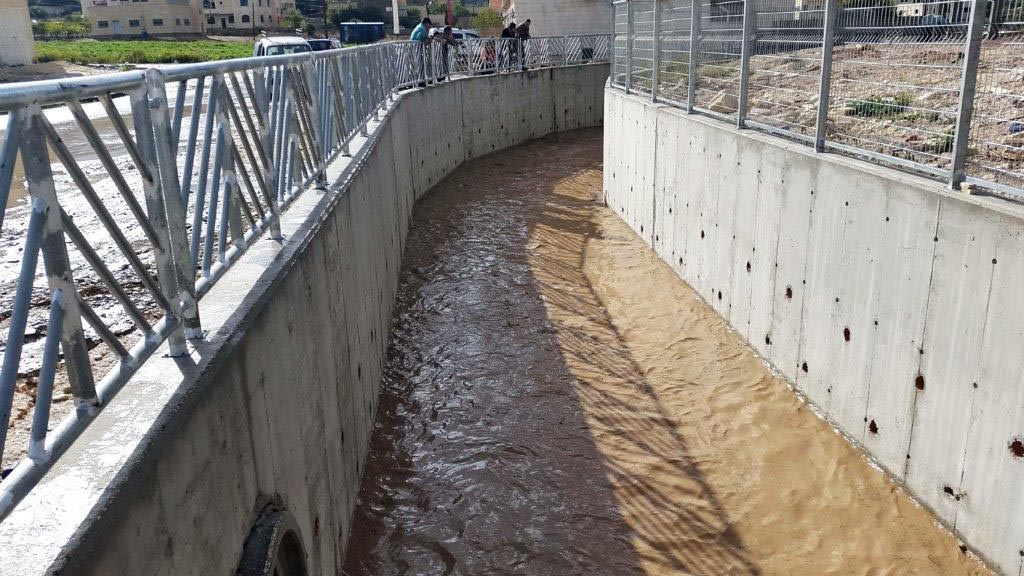

Running water is a daily struggle to many Palestinians in Jenin, where dilapidated water networks and pollution are prevalent. Even worse, in remote villages, running water is still a dream. Through infrastructural programs, Anera has been helping families access clean potable water to bathe their children, clean their homes and prepare meals without the drudgery and high cost of buying tankered water.
Through its various infrastructural development programs, Anera has enhanced water infrastructure and accessibility in the city of Jenin and surrounding localities like Ajjah, Arrabah, Arranah, Deir Ghazala, Jaba'a, Kafr Ra'i, Qabatiya, Raba, Ya'bad and Zababida.
In Qabatiya, for example, the 23,000 residents of Jenin's second city — famous for its stone quarries — had faced the same challenge for years: rainwater flooding. Flooding sometimes caused millions of dollars in losses from water damage to private and public property, and damaged hundreds of homes. The flooding impacted everyday life, preventing children from reaching schools and patients from reaching clinics and hospitals. Finally, in 2013, with funds from USAID, Anera’s Palestinian Community Infrastructure Development project extended the existing storm water drainage channel and diverted the storm water safely away.
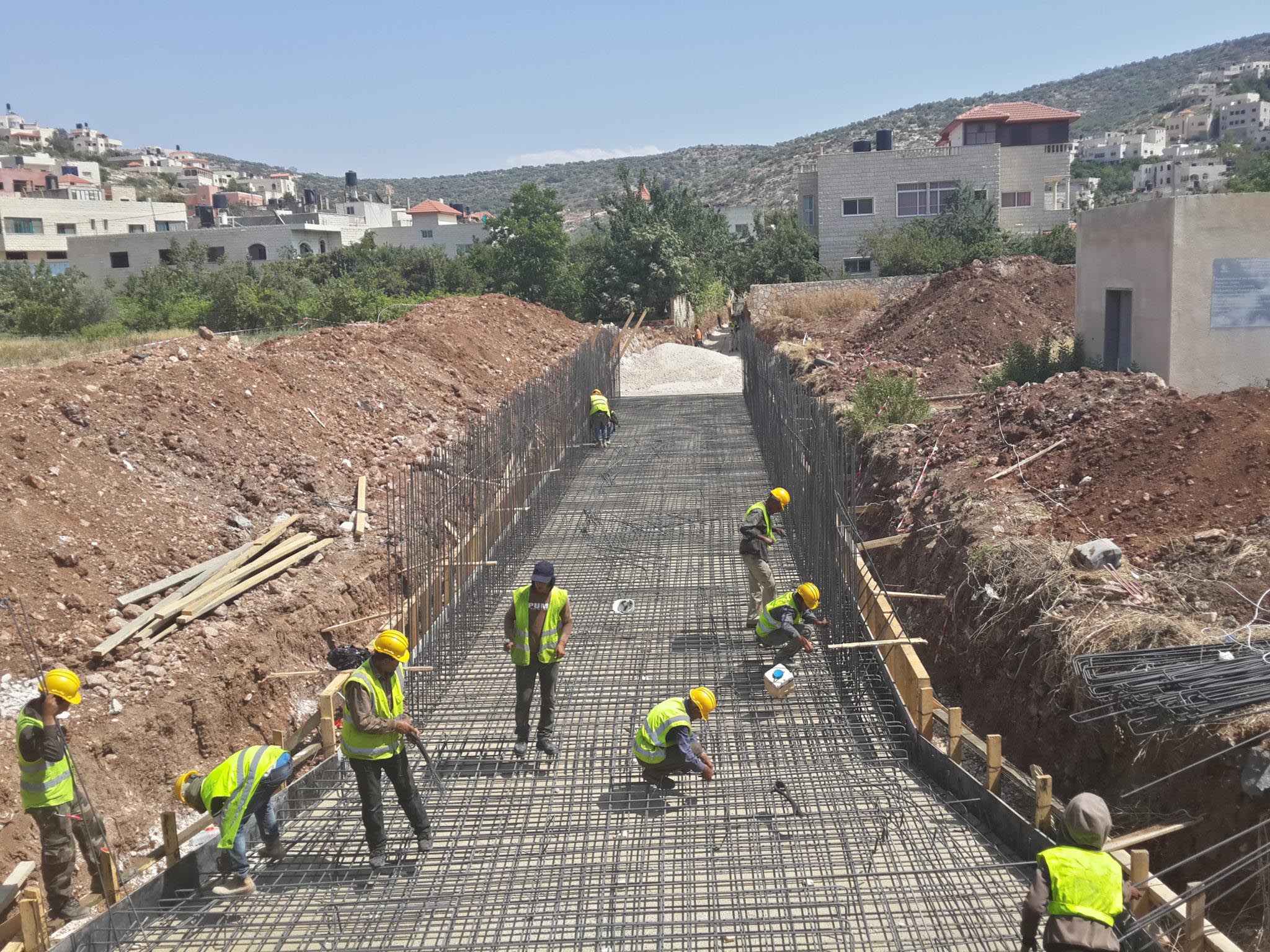

Better Educational Environments
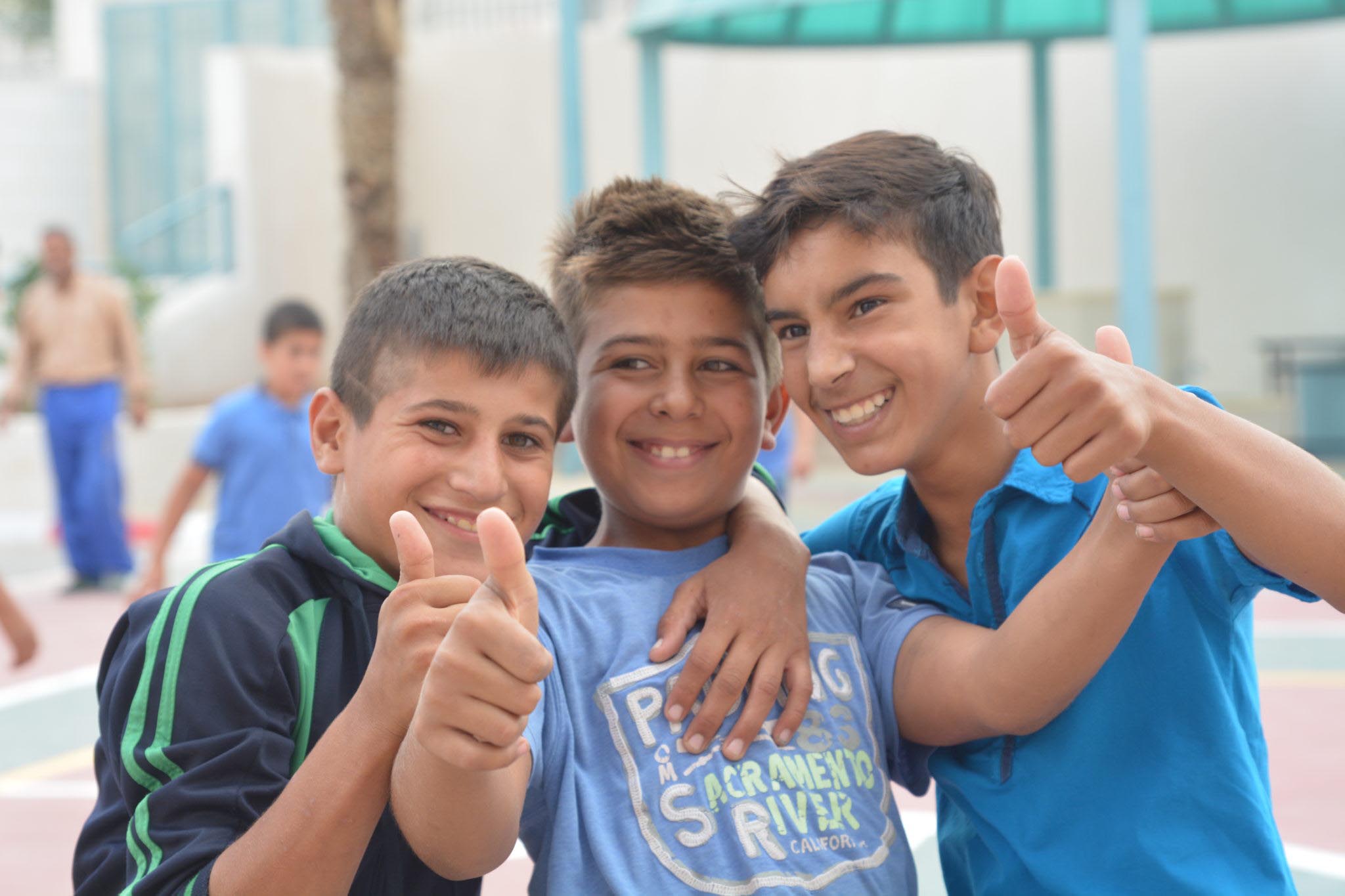

With only one secondary school, the village of Jalqamus was struggling to provide an education to local children, as well as students from neighboring villages who had no place else to turn. Anera's response was to expand the school by constructing an additional two-story building. The new building comprises six classrooms, a library, and science and computer labs.
The original building was not overlooked. Anera rehabilitated the old building, turning it into a healthy and stimulating environment for all students. Rehabilitation work also included the playground.
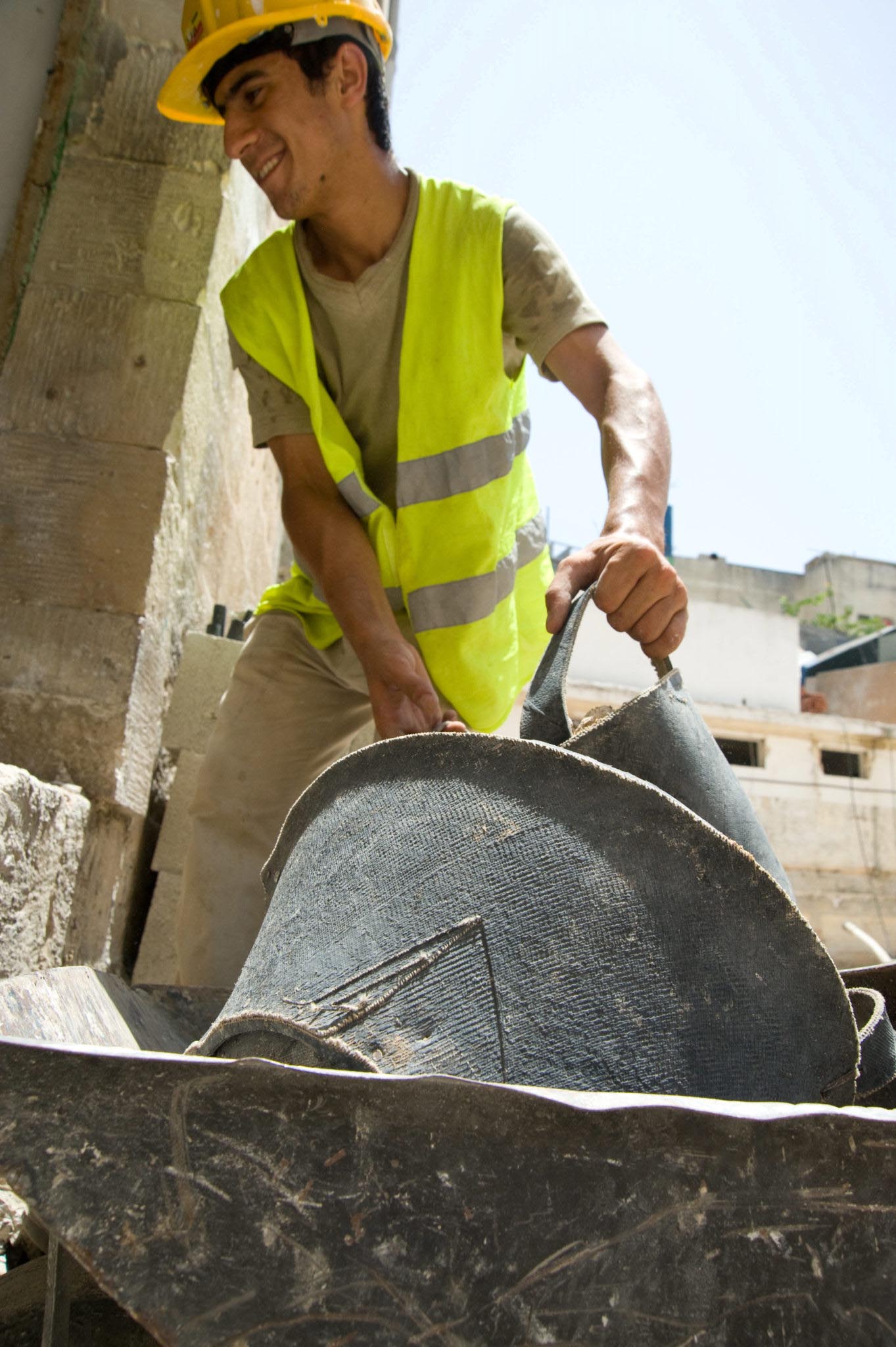

In Sir village, the only school could not accommodate high school students due to restricted space and resources. Since the co-ed school also serves students from the nearby village of Kfir, expanding the school was an urgent matter.
Anera's school expansion has relieved parents from the financial burden of sending their high school-aged children to schools in other villages. The renovation included science and computer labs, handicap-accessible bathrooms, and solar panels on the roof to make the school more energy efficient. Most importantly, the renovation and expansion contributes to lowering the dropout rate by providing a safe environment for students to grow and develop mentally and physically. We also constructed a small kindergarten for the area.
Older school projects have also made a lasting impact in the Jenin area. In 2010, Anera renovated the historical building of the Fatima Khatoun Girls’ School, which was originally built in 1882, not far from the famous Fatima Khatoun Mosque in the old city of Jenin. The building had served as a governor's headquarters before becoming a school. By the 21st century it was in desperate need of maintenance. Anera responded by delivering a holistic renovation for its facilities, playground and main entrance.
In Qabatiya, a boys' school needed additional classrooms to accommodate grades 11 and 12. Anera completed an unfinished floor, added four classrooms, a computer lab and a multipurpose hall. The original floor was also rehabilitated, along with its facilities.
Through building and renovating schools, Anera provides thousands of job opportunities to workers in and around targeted villages, indirectly helping to sustain countless Palestinian families.
Supporting the Health Sector
Investing in health has always been among Anera's top priorities. From delivering vital medicines to building clinics and rehabilitating hospitals, Anera supports charitable health institutions to better serve Palestinian families. In Jenin, we've renovated key facilities, helping families lead healthier and stronger lives.
Anera's 2008 rehabilitation of the Jenin Hospital comprised sewage and restroom work, plastering and painting, electrical work and various repairs throughout its three floors. “This is the biggest project carried out at the hospital since it was created in 1960,” said the hospital director. “It has really improved the hospital’s performance.”
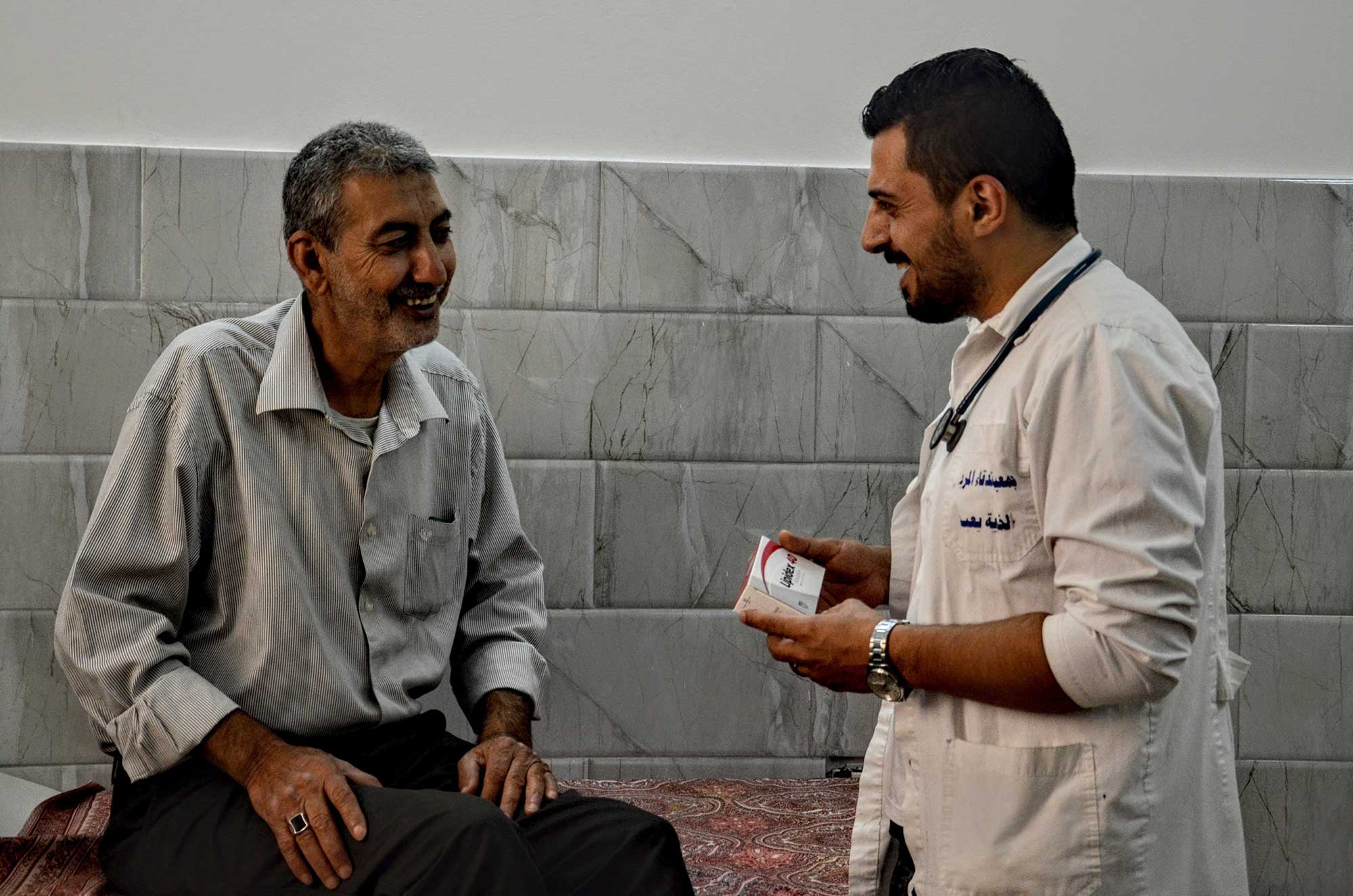



“This is what I call a hospital. Now we have curtains that give privacy for each patient. People feel more comfortable and that has a positive influence on how they interact with us.” — Rabiha, Jenin Hospital head nurse
In 2010, Anera constructed additional rooms in the Ministry of Health's sole mammography clinic in Jenin. We also rehabilitated the toilet unit, repaired roof and wall insulation, and delivered general maintenance work on the building’s premises.
Medical Aid
Anera distributes millions of dollars worth of medical aid for chronic conditions, hospital equipment, wheelchairs, over-the-counter drugs, and health care supplies that would not otherwise be available in the communities where they are needed the most. Our deliveries support hospitals, clinics, schools, and community centers struggling to meet the needs of underprivileged families.
Some 20 kilometers west of the city of Jenin lies the town of Ya'bad, which is famous for its abundant olive groves. People in this remote, disadvantaged area rely heavily on the Patient's Friends Society, the only charitable clinic. The Society has long been a recipient of Anera's donated medicine program.
Two of the patients at the clinic are siblings, Tamer and Lana. When they were diagnosed with a rare genetic disease, their devastated parents didn’t know how to find and afford the medication that they needed to survive. Because the medication is unavailable and expensive, Anera has been delivering it for free for more than a dozen years. Now Tamer and Lana can lead healthy lives.
Anera has also run programs to help medical professionals stay on top of the latest medical treatments to better serve their communities. In 2010, we offered telemedicine classes to physicians across the West Bank. Dr. Burhan Sammar traveled from his practice in Jenin twice a month to attend the class in Ramallah. Dr. Sammar is head of the Red Crescent Society in Yamun, a town west of the city of Jenin, as well as the Medical Development Society, which offers a daily mobile clinic service to impoverished and remote areas in Jenin.
Promoting Information Technology
Between 2004 and 2008, Anera built spaces dedicated to developing the IT sector and nurturing an entrepreneurial spirit in youth. We provided youth with business links, educational courses, incubation services and technical assistance. We built multi-million dollar facilities at four key universities in Palestine, helping students transcend the physical restrictions enforced by the occupation.
At the American Arab University in Jenin, the Hassib Sabbagh IT Center of Excellence offers online courses and nurtures innovation. Since opening its doors in 2005, the center has contributed in countless ways to the growth of the Palestinian economy. Thousands of students have learned invaluable I.T. skills and innovative businesses have been launched.
Mohammad Jaradat, a former student and coordinator at the center in Jenin says, "The center believed in me and gave me a great responsibility that made me a better student and a motivated employee."
